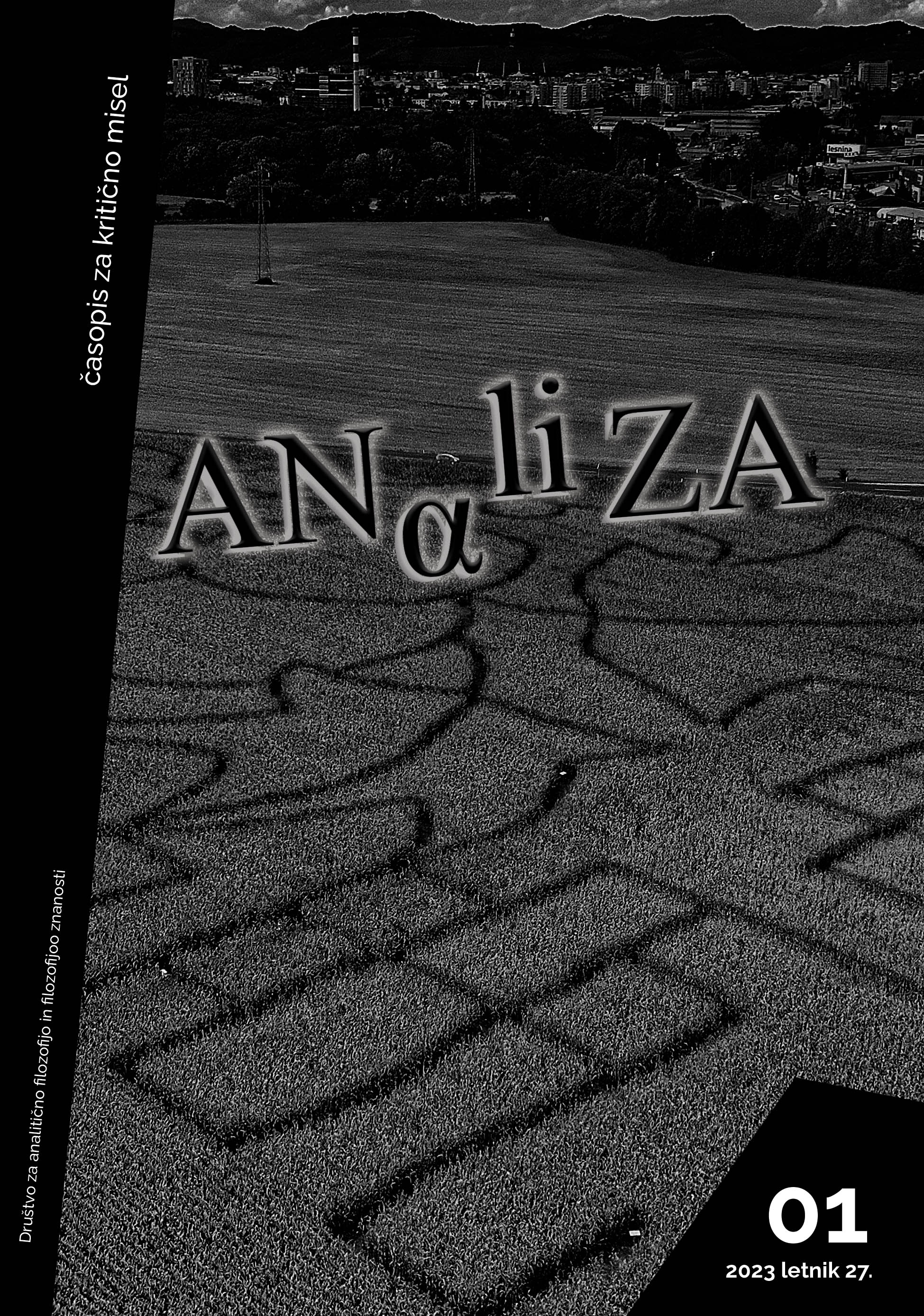Wittgenstein o etiki in estetiki
Neizogibnost etike, estetska drža kot Modus srečnega življenja
DOI:
https://doi.org/10.18690/analiza.27.1.53-66.2023Ključne besede:
Wittgenstein, etika, estetika, svetost etičnih tavtologij, tragičnostPovzetek
Članek se ukvarja z Wittgensteinovim razumevanjem etike in estetike. Avtor predstavi razumevanje zgodnjega Wittgensteina. Najprej pojasni Wittgensteinovo razumevanje etike, potem pa še njegov pogled na etični pomen estetske drže. V tem okviru razloži, v kakšnih smislih in ozirih lahko govorimo o etiki kot neizrekljivem (transcendentalnem) pogoju in pojasni naslednje trditve: etične tavtologije so nedotakljive ali celó svete, njihovo kršenje je tragično; s spremembo drže do sveta se spremenijo meje sveta, ne pa dejstva sveta, in svet postane drug svet; »etični stavki« so formalni in absolutni; etika in estetika sta eno; estetska drža je srce srečnega življenja; etika zgodnjega Wittgensteina je »egocentrična« ali solipsistična, evdaimonistična, ima značilnosti etike kot umetnosti življenja in je osebne narave, etika posameznika.
Prenosi

Prenosi
Objavljeno
Številka
Rubrika
Licenca
Avtorske pravice (c) 2023 Univerza v Mariboru, Univerzitetna založba

To delo je licencirano pod Creative Commons Priznanje avtorstva 4.0 mednarodno licenco.